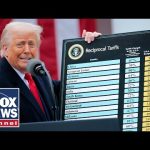Delaware Senator Chris Coons has recently emerged as a vocal critic of the fiscal policies and government restructuring efforts led by Elon Musk and supported by former President Donald Trump. During a series of public appearances, Coons addressed several pressing issues, including Social Security, tariffs, and the broader implications of Musk’s Department of Government Efficiency (DOGE). His remarks reflect a staunch defense of traditional government programs while casting skepticism on the radical changes proposed by Musk and Trump.
Coons took particular aim at Musk’s DOGE initiative, which seeks to streamline government operations but has drawn criticism for its aggressive tactics and alleged lack of transparency. Coons accused Musk of exaggerating claims of waste within Social Security to justify potential cuts, which he argued would harm millions of Americans who rely on these benefits. Despite Musk’s assertions that Social Security is riddled with inefficiencies, Coons pointed to data showing that improper payments account for less than one-tenth of one percent of total disbursements. This, he claimed, underscores the importance of protecting the program rather than dismantling it under the guise of reform.
The senator also expressed grave concerns about Trump’s tariff policies, which have imposed sweeping import taxes from key allies like Canada. Coons warned that these tariffs are effectively a tax on American consumers, driving up costs for essential goods such as food and housing. He criticized the administration’s approach as reckless and punitive, arguing that it disproportionately impacts middle-class families while doing little to address trade imbalances. Coons called for targeted measures to protect American industries without imposing undue burdens on everyday citizens.
In addition to his policy critiques, Coons highlighted the broader economic risks posed by the Trump-Musk agenda. He warned that their actions—ranging from mass layoffs in federal agencies to indiscriminate budget cuts—could destabilize critical government functions and exacerbate economic inequality. Coons painted a stark picture of an administration prioritizing corporate interests over the needs of ordinary Americans, suggesting that their policies could lead to widespread hardship if left unchecked.
While Coons acknowledged the need for modernization and efficiency in government, he emphasized that such efforts must be grounded in honesty and bipartisanship. He expressed willingness to work with figures like Musk but insisted that any reforms be based on accurate data and a commitment to preserving essential programs. For Coons, the stakes are clear: safeguarding Social Security and other vital services is not just a policy priority but a moral imperative.
Ultimately, Coons’ remarks serve as a rallying cry for those who oppose what he views as an assault on the social safety net. His defense of traditional government programs reflects a broader concern about the direction of fiscal policy under Trump and Musk. As debates over Social Security, tariffs, and government efficiency continue to unfold, Coons’ steadfast advocacy underscores the need for a balanced approach that prioritizes the well-being of American families over ideological experimentation.




